Below are the ORIGINAL, CORRECT versions of the editing challenges. Compare them to to the corrections you made.
Keep in mind there’s often more than one way to correct the same mistake. Just because your version is not identical to mine does not necessarily mean it is wrong. E-mail me with any doubts or questions – the first three consultations are FREE!
All editing challenges are adapted from https://www.dailytoday.com (2023) or https://www.history.com/this-day-in-history (2022).

Holidays this Month: Back to School
For many children around the world, September means that it’s time to head back to school. Parents in desperate need of a break finally get Lazy Mom (and National Chianti) Day to relax, while kids enjoy catching up with old friends and making new ones during Oddfellows Friendship Month. Remember that Self Improvement Month isn’t just for the youth, though. Festival of Learning Have a Go Month promotes many events and even awards to encourage lifelong learners of all ages.

Holidays this Month: Degrees for Dogs
As both Pet Sitter Education Month and Responsible Dog Ownership Month, September sees more than just human children returning to school. Where do you think service dogs learn all of their incredible skills? Consider protecting them with pet insurance. Happy cats and chickens tend to get by alright with just the bare necessities, but bears would prefer some honey and endangered tigers could also use our help. Finally, stay safe during National Velociraptor Awareness Month. It’s a jungle out there!

Holidays this Month: Better Breakfast
Keep the learning going in the kitchen during Cholesterol and Food Safety Education Month. Honey may never expire, but other condiments do, so check regularly. For a better breakfast, buy organic papaya and try baking your own sourdough bread. Spread the word this September, too, about baby safety, childhood obesity, healthy aging, and pain awareness for both humans and our four-legged companions. Footy Colors Day raises money to fight cancer, while women wear bright makeup during “Liptember” for mental health.

Holidays this Month: Fun Fair
As the saying goes, “all work and no play makes Jack a dull boy,” so let’s not forget that September is also Fun Fair Month! Are you ready for some intergenerational entertainment? Actually, most other things celebrated this month are meant for an older crowd, like sewing, yoga, candles, and classical music. Don’t let that ruin your weekend, though – it’s also Disaster Preparedness Month. As summer ends and fall begins, save your photos to preserve all of those priceless memories.

On This Day: September 1
Did you know that car airbags were inspired by inflatable protective covers for torpedoes? American John Hetrick invented them in 1953. He sent his idea to the big automakers, but never heard back – safety just didn’t sell back then. People didn’t want to wear seatbelts either, though, and if they had to choose between one or the other, airbags suddenly seemed a lot more convenient. They improve your chances of surviving a head-on collision by thirty percent, after all. Even so, they were not made mandatory until September 1, 1998. Just remember that airbags can be dangerous – even deadly – to children. It is always safer to use them together with a lap and shoulder belt.

On This Day: September 2
After six years and one day, World War II finally came to an end on September 2, 1945, when Japan surrendered to the Allies. A mere couple of hours later, though, a new war was already brewing, not far away. France had governed Indochina since the late 19th century, but their rule had briefly been usurped by the Japanese. Knowing the French would soon return, rebel leader Ho Chi Minh gathered an enormous crowd in Hanoi’s Ba Dinh Square and declared Vietnam’s independence. It would take thirty years and two bloody conflicts to achieve real freedom and, sadly, Ho Chi Minh would not live to see it. He died exactly twenty-four years later, on September 2, 1969.

On This Day: September 3
How old is the United States of America? If you counted all the way back to the Declaration of Independence in 1776, then guess again. We didn’t even have a flag back then (the “Stars and Stripes” didn’t appear in battle until this day, a year later). In fact, it was only with the signing of the Treaty of Paris on September 3, 1783, that the world – including Great Britain – officially began recognizing us as a legitimate, independent nation. Requests for Canada to be included in the new country were denied. Nevertheless, the U.S. still acquired enough land to double in size. Its new borders stretched north from Florida, and all the way west to the Mississippi River.

On This Day: September 4
Have you ever heard anyone yell, “Geronimo!” before jumping from a high height? What is that all about? Geronimo was the name of a famous Apache chief, born in 1829. Discontent in the poor reservation the U.S. government was forcing his people to live in, he escaped and started attacking white settlements. Federal troops pursued him for more than a decade, but he kept escaping and continuing to raise havoc. It wasn’t until September 4, 1886, that he finally surrendered, the last great Native American leader to do so. In 1940, paratroopers started a new tradition of shouting Geronimo’s name for courage before jumping out of airplanes, joking they were too scared to remember their own.

On This Day: September 5
The Muppets may just be puppets (their name is literally a blend of “marionette” and “puppet”), but they’ve dominated television, movies, and even have their own ride in Disneyland. They are considered classic American cultural icons today, but did you know that “The Muppet Show” was originally broadcast on September 5, 1976, from London? No one was interested in the U.S. at the time. Jim Henson started developing his unique talent (and crazy cast) during college, and Kermit the Frog made his debut in a brief 5-minute TV appearance in 1955. Other famous Muppets include Miss Piggy, Gonzo the Great, Elmo and Big Bird from “Sesame Street,” and Yoda in “Star Wars”.
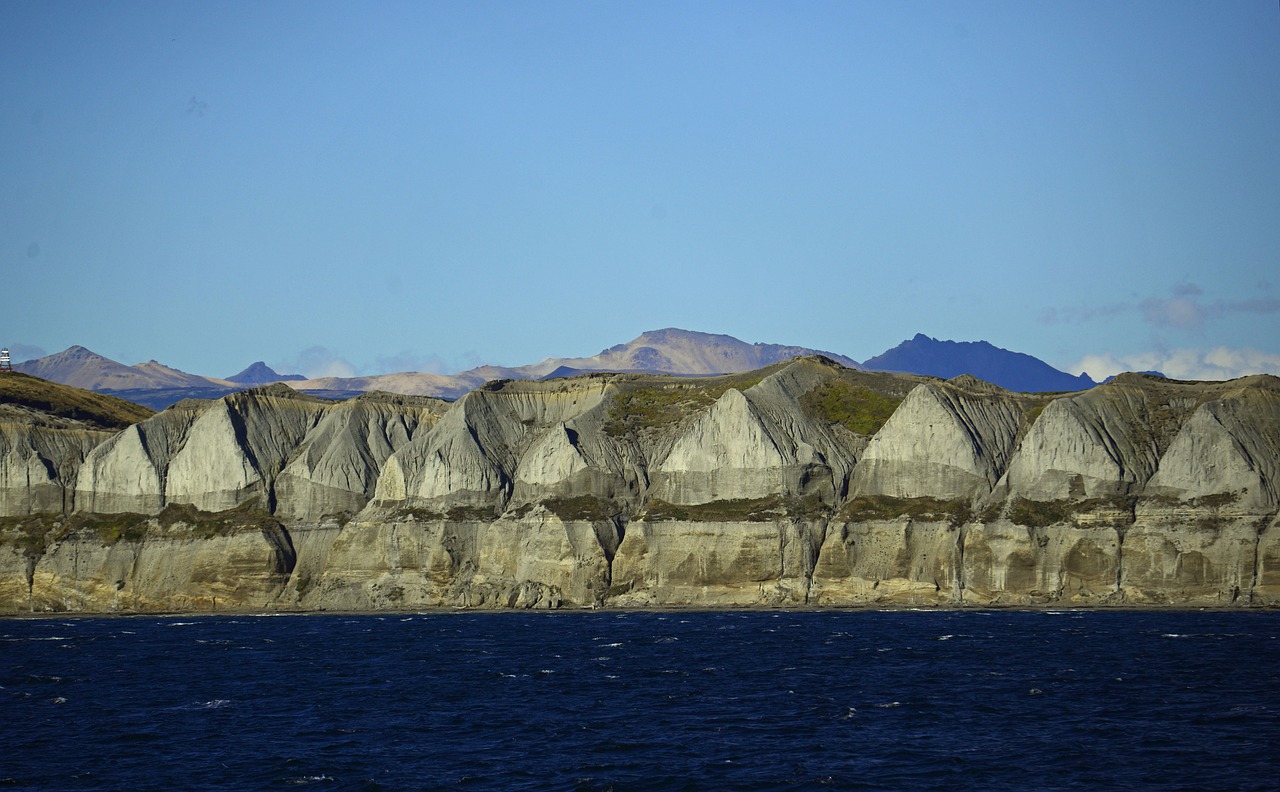
On This Day: September 6
In school, did you learn that Ferdinand Magellan was the first man to circumnavigate (or travel all the way around) the Earth? He didn’t. When his last remaining ship, the Victoria, sailed into the Spanish port of Sanlúcar de Barrameda on September 6, 1522, there were only twenty-two passengers on board, and Magellan wasn’t one of them. He had departed September 20, two years prior, with 270 men and five ships. Upon arriving at the Philippines, he insisted on starting a war with the natives and died from a poisoned arrow. The surviving commander, Juan Sebastián de Elcano, never receives due credit nowadays as the real globetrotter, but he did at least make god money on the process.
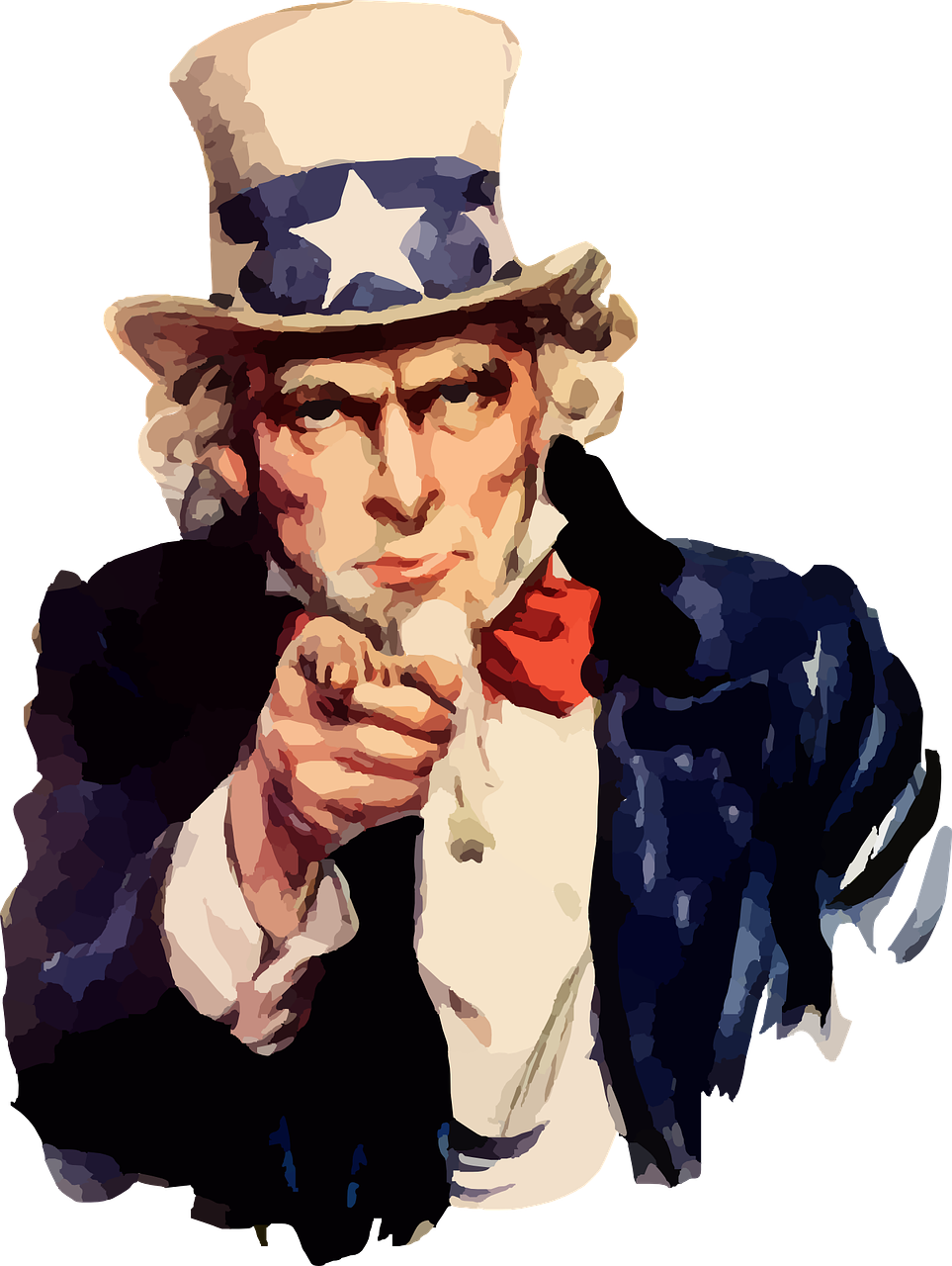
On This Day: September 7
In propaganda and cartoons, the United States has long been personified as a tall, lanky old man wearing a red, white, and blue suit, who goes by the name “Uncle Sam.” Where did he come from? Samuel Wilson was one of the army’s biggest suppliers of beef during the War of 1812. He would stamp each barrel with the letters “US,” so soldiers joked that their food came from Uncle Sam. The Troy Post ran a story about him on September 7, 1813, and the nickname spread. Renowned political cartoonist Thomas Nast made him even more famous after the Civil War. Highly influential, Nast also popularized the Democratic Party’s donkey, the Republicans’ elephant, and even Santa Claus.

On This Day: September 8
“Trekkies” worldwide celebrate Star Trek Day every September 8 in honor of the show’s American release in 1966 (although, technically, it aired for the very first time on Canadian television two days before). The original series, featuring the many space adventures of Captain Kirk and the USS Enterprise, only ran for three seasons, but new spin-offs are still being produced today. In the midst of a real space race and cold war with Russia and civil rights protests at home, Star Trek inspired hope for future world peace and equality. When African-American actress Nichelle Nichols wanted to quit, Martin Luther King Jr. met with her personally to convince her to stay on because the show was that influential.
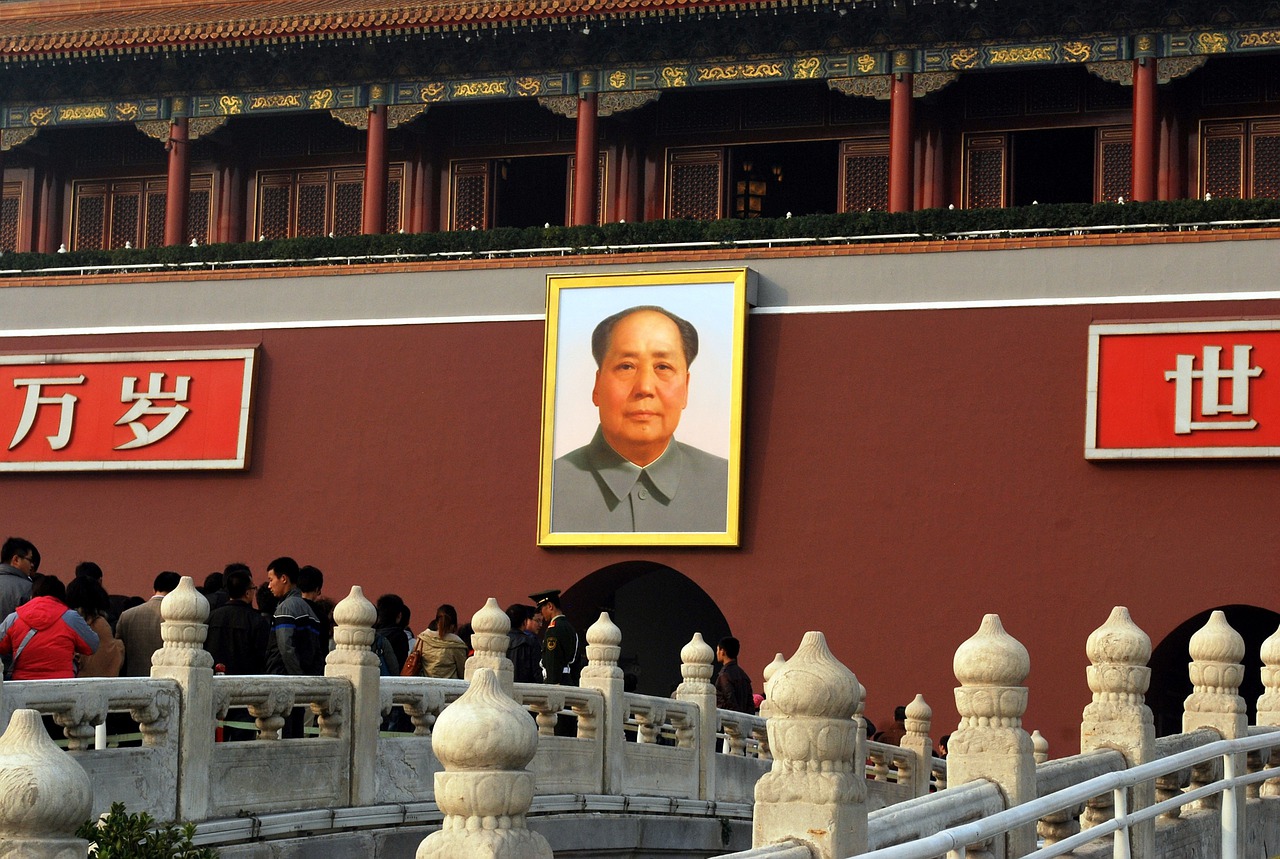
On This Day: September 9
Mao Zedong rose from humble beginnings as a farmer to become one of the most influential world leaders of the 20th century. Born in 1893, he left home and joined the nationalist movement during the 1910s to protest the decadent emperors and manipulative foreigners. Losing faith in his leaders, however, he helped found the Chinese Communist Party in 1921 and began advocating for even more radical change to all levels of society – a complete “cultural revolution.” After nearly fifteen years of fighting, the CCP finally defeated Sun Yat-Sen’s nationalist forces, and “Chairman” Mao took total control. He would continue to rule China with extremist fervor until his death on September 9, 1976.

On This Day: September 10
On September 10, 2008, the world almost came to an end. At least, that’s what many scientists claimed would happen if the Large Hadron Collider at the European Organization for Nuclear Research (CERN) lab were ever turned on. They worried that, when this machine forced particle beams to collide near the speed of light, small black holes may form and destroy the planet. Respected physicist Stephen Hawking denied these assertions, insisting that any such black holes would instantly collapse. The experiment proceeded and, fortunately, nothing bad happened. Many new discoveries have been made since then, and, in 1913, Peter Higgs and François Englert were awarded the Nobel Prize in Physics for their work with the collider.

On This Day: September 11
Construction began on the Pentagon on September 11, 1941. This strangely-shaped building is the headquarters for the United States’ military, located just outside Washington, D.C. At 6.5 million square feet (620,000 m2), did you know that it is also the largest office building in the world? Were you also aware that, exactly sixty years later, a large portion was destroyed when a plane crashed into it? Nearly 3,000 people died from the 9/11 terrorist attacks, and more than 6,000 were injured. The vast majority were in New York City, but it’s important, too, to recognize the 189 deaths in Washington that day, as well as another 40 brave passengers who crashed their plane in Pennsylvania to save more lives.

On This Day: September 12
Sometimes great discoveries happen completely by accident. Such was the case on September 12, 1940, when a group of French teenagers wandering around with their dog stumbled upon a cave with 17,000-year-old paintings – some of the best-preserved examples of Paleolithic art that survive today. The Lascaux Grotto is only 66 feet wide and 16 feet high, but the walls are covered with some 600 paintings and 1,500 engravings. They detail a wide variety of animals and just one bird-headed man. The cave was closed to public visitors in 1963 because the artificial lights were damaging the pictures, but a replica was built nearby in 1983. It receives tens of thousands of visitors every year.

On This Day: September 13
The poorly-named War of 1812 was still raging on September 13, 1814 – the White House had recently been burned to the ground – when lawyer Francis Scott Key boarded an enemy ship to negotiate the release of a friend. He was forced to remain aboard that night as the British bombarded Baltimore. The sight of a tattered American flag still flying over Fort McHenry the next morning filled his heart with so much joy that he couldn’t help writing a short poem, which was later published. Composer John Stafford Smith set the powerful, patriotic words to an old drinking tune, and “The Star-Spangled Banner” was born. It was adopted as the United States’ official national anthem on March 3, 1931.

On This Day: September 14
Can you imagine going to sleep on September 2 and waking up the next day to September 14? This happened in 1752. Before then, Great Britain (and its American colonies) was still using something called the Julian calendar, which had been established by Julius Caesar himself way back in 45 B.C. In 1582, however, astronomers tweaked this slightly to adjust for leap years and made January – not March – the first month of the year. This new Gregorian calendar, named in honor of Pope Gregory XIII, was quickly adapted throughout Europe, except in anti-Catholic Britain, which stubbornly resisted for 170 years. For this reason, George Washington actually has two official birthdays: February 11, 1731, and February 22, 1732.

On This Day: September 15
World War I was a conflict of many firsts. For example, on September 15, 1914, both German and Allied forces began digging the first trenches near the Aisne River in France. This system of connected ditches would eventually stretch 35,000 miles (56,000 kilometers), from Belgium to Switzerland. “Trench warfare” would come to distinguish “the war to end all wars” from those before and after, leading to constant stalemates that stretched the fighting out for years. Another important first, also on this day in 1916, was the introduction of tanks in battle during the Battle of the Somme. They got this name from the British secret code used when referring to their development by the made-up (water) “Tank Supply Committee.”
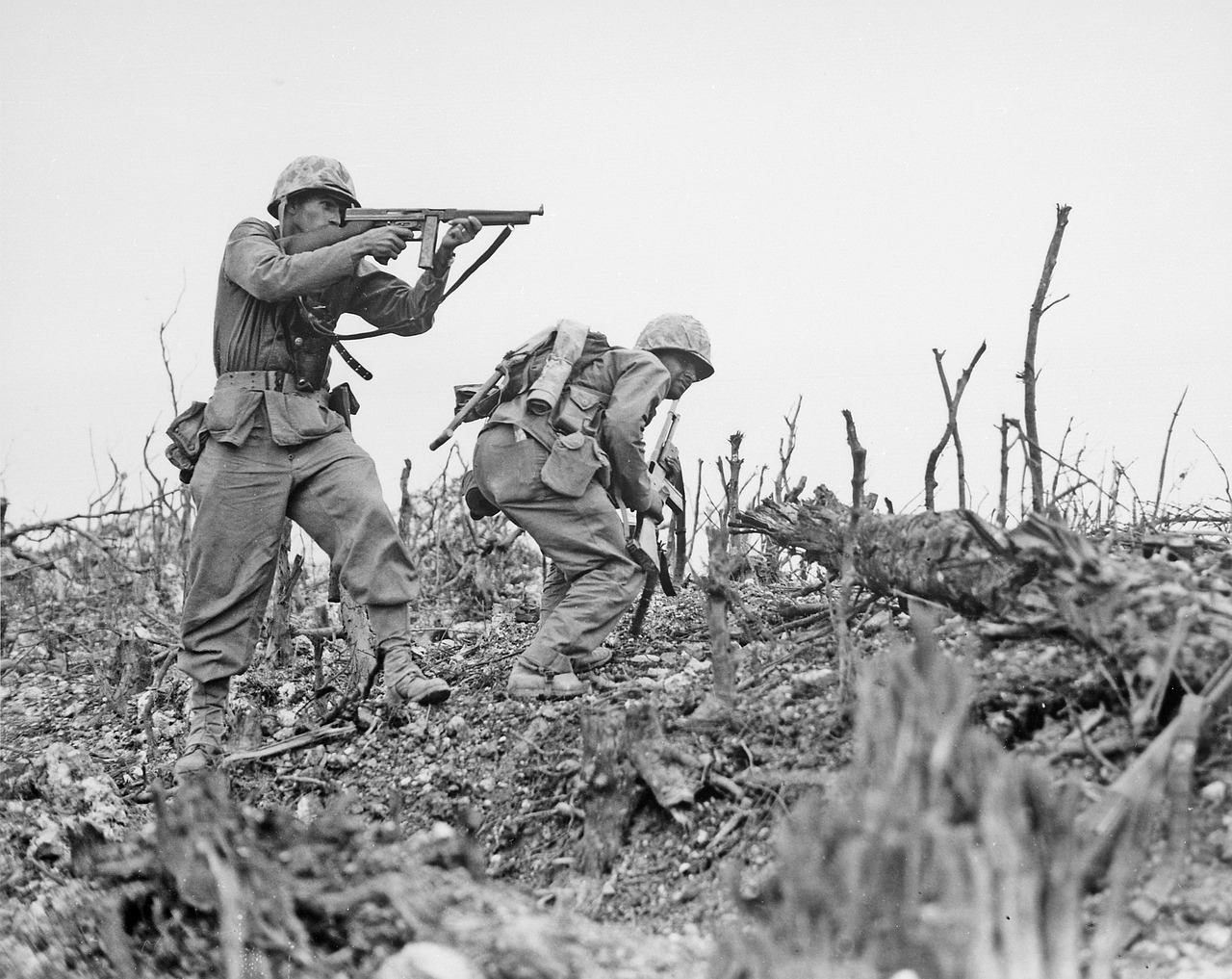
On This Day: September 16
The United States prides itself on having an all-volunteer military today, but it still reserves the right to draft new soldiers by force in case of a national emergency. All men (including immigrants) between the ages of eighteen and twenty-five are required to register with Selective Service. Refusing to do so may result in five-years’ imprisonment or a fine of up to $250,000. Forced conscription had existed since the Revolutionary War, but this modern lottery system was created on September 16, 1940, to fill peacetime roles as World War II loomed. The draft became so unpopular during the Vietnam “Police Action” that President Nixon ended it to satisfy protestors in 1973, and it hasn’t been used again since.

On This Day: September 17
Oprah Winfrey grew up in poverty, but she’s now the richest black female billionaire in the world. It all started with a third-rate Chicago talk show. On September 17, 1996, she introduced Oprah’s Book Club, highlighting “The Deep End of the Ocean” by Jacquelyn Mitchard for viewers to read and discuss that month. Many dismissed the idea that uncultured daytime-television watchers would be interested in such a sophisticated concept, but Oprah’s legion of fans rose to the challenge. She’s so influential today that many of the books she recommends sell over a million copies. Her TV show ended in 2011, but Oprah’s Book Club 2.0 continues online if you are looking for inspiration for your next good read.
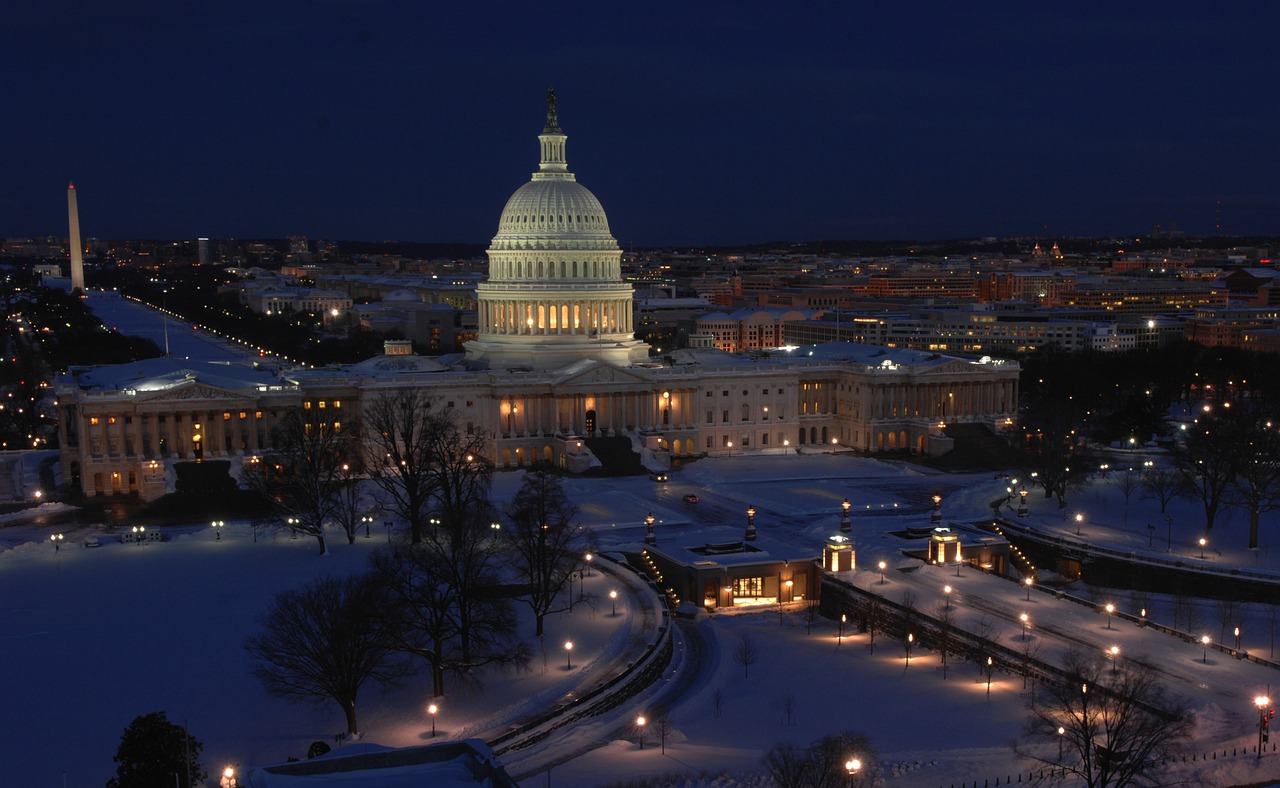
On This Day: September 18
Some construction projects seem like they’re never going to end! Such was the case with the United States Capitol Building, home to our legislature. George Washington himself laid the cornerstone on September 18, 1793, but the building would take almost a century to complete. After the original architect quit, a competition was held to determine the design. Congress started meeting in the half-finished north wing in 1800, but then the British attacked in 1814 and set much of the city on fire. Expansion was necessary by 1850, but the Civil War, ten years later, stalled construction even more. The Capitol’s iconic dome was finally completed in 1866, but additional expansion projects continued well into the 20th century.

On This Day: September 19
The Founding Fathers were an optimistic lot, signing the Declaration of Independence at a time when the colonists – a ragtag mob of untrained and poorly equipped farmers confronting the greatest military in the world – were losing badly. Then, a miracle happened. The First Battle of Saratoga took place on September 19, 1777, when American forces intercepted the British en route to Albany, New York. The Redcoats won, but suffered twice as many casualties. The Second Battle of Saratoga, eighteen days later, was the first true victory for the Continental Army. More than just lifting morale, it ruined British plans and convinced other European nations to come to our aid. Without that help, there would be no U.S. today.

On This Day: September 20
Of course, the years following Columbus’ arrival in the Americas were filled with terrible violence against native peoples, but September 20, 1565, marks the first time that Europeans fought each other in the New World. A group of French Huguenots had settled on the coast of Florida the year before. Not happy, the Spanish king sent Pedro Menédez de Avilés to reassert his authority. Avilés founded San Agustín on September 8, 1565, and, wasting no time, attacked Fort Caroline two weeks later. The French were defeated so completely that they decided to refocus all future colonial efforts far to the north, in Canada, from then on. Meanwhile, Saint Augustine is still around today – the oldest city in North America.

On This Day: September 21
Benedict Arnold is perhaps the most famous “turncoat,” or traitor, in American history. During the first years of the Revolutionary War, he had proven himself to be a brave, skillful leader, rising to the rank of Brigadier General. Many considered him a hero. Nevertheless, Arnold grew bitter at the lack of further promotion. On top of this, his wife had racked up huge debt at home. Finally, on September 21, 1780, Arnold agreed to hand over an important fort at West Point to the enemy in exchange for money and high rank in the British army. Fortunately, the plot was discovered before it was too late. Arnold escaped, but he was now the most hated man in America.
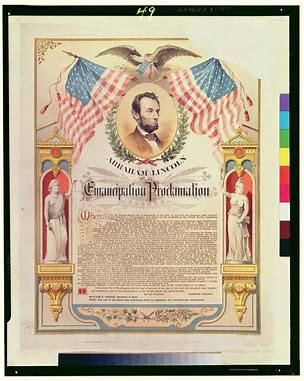
On This Day: September 22
In the early days of the Civil War, Abraham Lincoln insisted that he only wanted to make the nation whole again, even if that meant preserving slavery. On September 22, 1862, however, an early version of the Emancipation Proclamation was issued, declaring that rebel states had one hundred days to surrender, or all of their slaves would be freed. Importantly, that meant that slavery would still remain legal in loyal states. Equally smart, now that the Union had taken an official stance, it made it more difficult for the South to get support from European powers who had already banned the practice. In 1865, Congress passed the 13th Amendment, freeing all slaves throughout the entire country forever.

On This Day: September 23
Neptune, the eighth planet from the Sun, was discovered on September 23, 1846. French astronomer Urbain Le Verrier, who had been studying irregularities in the movement of Uranus he believed were caused by strong gravitational interference, calculated the approximate location of a new, theoretical planet. He then enlisted help from a colleague at the Berlin Observatory, Johann Gottfried Galle, who spent twenty-four hours scrutinizing the area, taking notes on one slightly-blue light’s odd behavior. They named their discovery after the Roman god of the sea. Today we know this gas giant is four times larger than Earth, has eight moons, and is the windiest planet in the solar system. Neptune was visited by the Voyager 2 spacecraft in 1989.

On This Day: September 24
On September 24, 622 A.D., the Prophet Muhammad completed his Hijrah, or “flight.” This event is so important to Muslims that it marks the first year of their calendar (according to which, 2022 is actually 1443). What happened? Ever since the angel Gabriel appeared to him around 610, the Prophet had faithfully spread his message of the one true God in Mecca, despite much resistance. The locals hated his constant criticism of their lifestyle and gods, and things finally got so bad there that, under threat of death, Muhammad had no choice but to escape with his followers. Four hundred kilometers away, in Medina, they finally found peace (for a time) and a much more receptive audience.
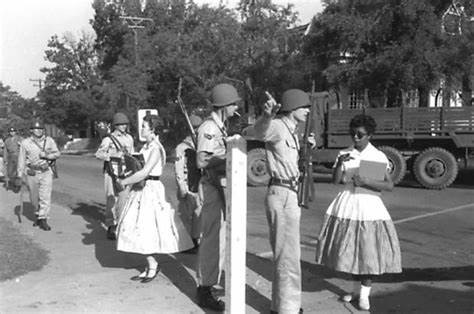
On This Day: September 25
Once the Constitution was ratified, Congress’ next priority was adding a Bill of Rights, which passed on September 25, 1789. Nearly two hundred years later, however, a large part of the population was still fighting for basic rights. For example, it took until 1954 for the Supreme Court to rule racial segregation in schools unconstitutional. That didn’t stop the governor of Arkansas from sending soldiers to prevent nine African-American teenagers from entering an all-white school, though. President Eisenhower himself had to order federal troops to escort the “Little Rock Nine” through a violent mob of one thousand protestors, also on September 25, 1957. One girl even had acid thrown in her eyes! This was the price for equality.

On This Day: September 26
“West Side Story” opened on Broadway for the first time on September 16, 1957. This modern adaptation of Shakespeare’s “Romeo and Juliet” tells the tale of two star-crossed lovers, Polish Tony and Puerto Rican Maria, who are kept apart on opposing sides of New York gang wars. The musical’s message of interracial peace touched an especially tender nerve just one day after the violent forced integration of a school in Little Rock, so initial reviews were mixed. Nonetheless, the gritty story, explosive dance choreography, and emotional soundtrack, considered some of famed composers Leonard Bernstein and Stephen Sondheim’s best work, eventually won most critics over. The film version was released in 1961 and won an Oscar for Best Picture.
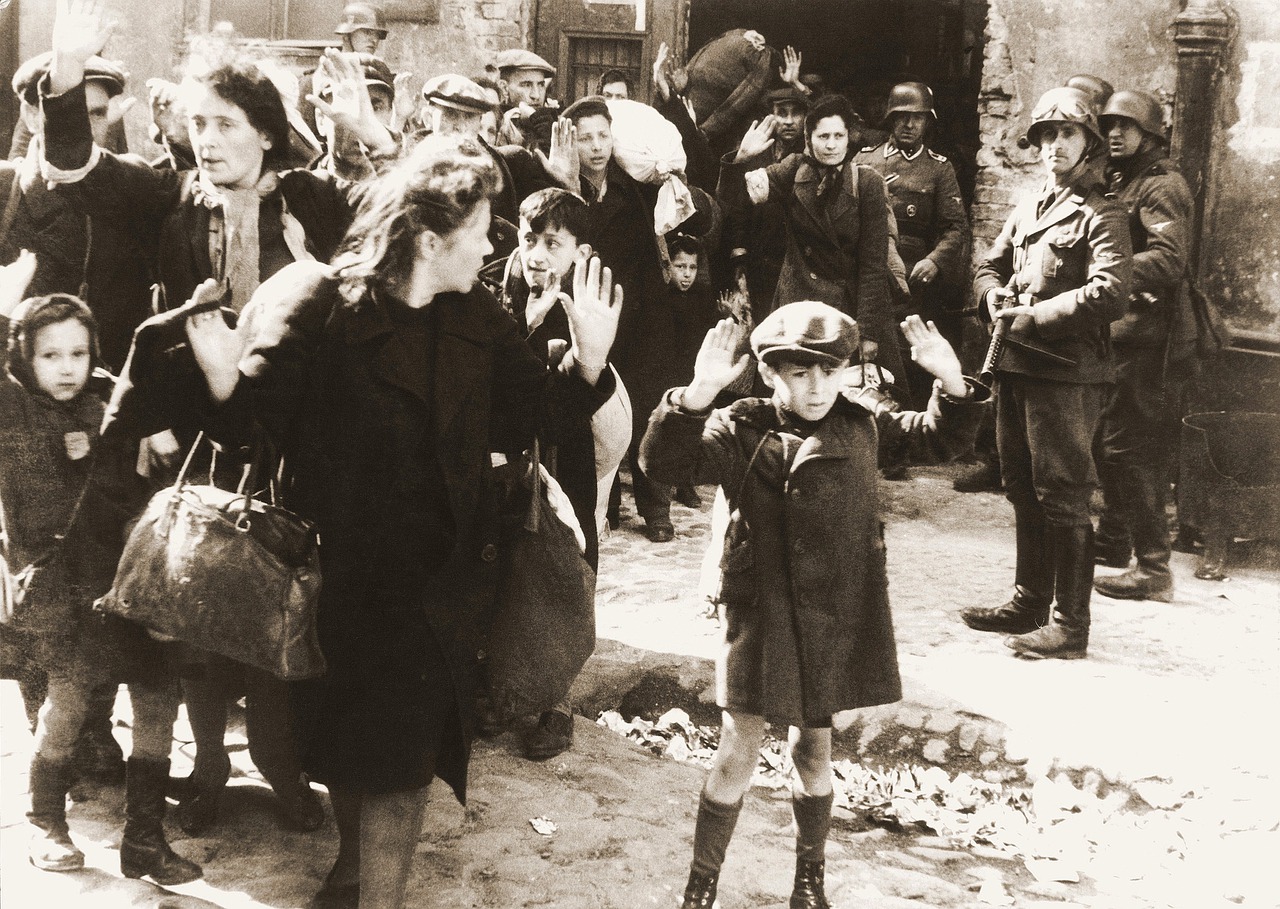
On This Day: September 27
September 27 marks the date of two very important events in World War II. First, in 1939, was the fall of Warsaw to Nazi forces. Britain and France had both honored promises to declare war against Germany as soon as it crossed into Poland on September 3, but they were too slow to save the capital. Hitler’s subsequent slaughter of the people there horrified the rest of the world and hardened their resolve to stop him, no matter the cost. That is, most of the world felt this way. One year later, on the same day, the Axis powers – Germany, Italy, and Japan – signed the Tripartite Pact, vowing to come to each other’s aid in case of attack.
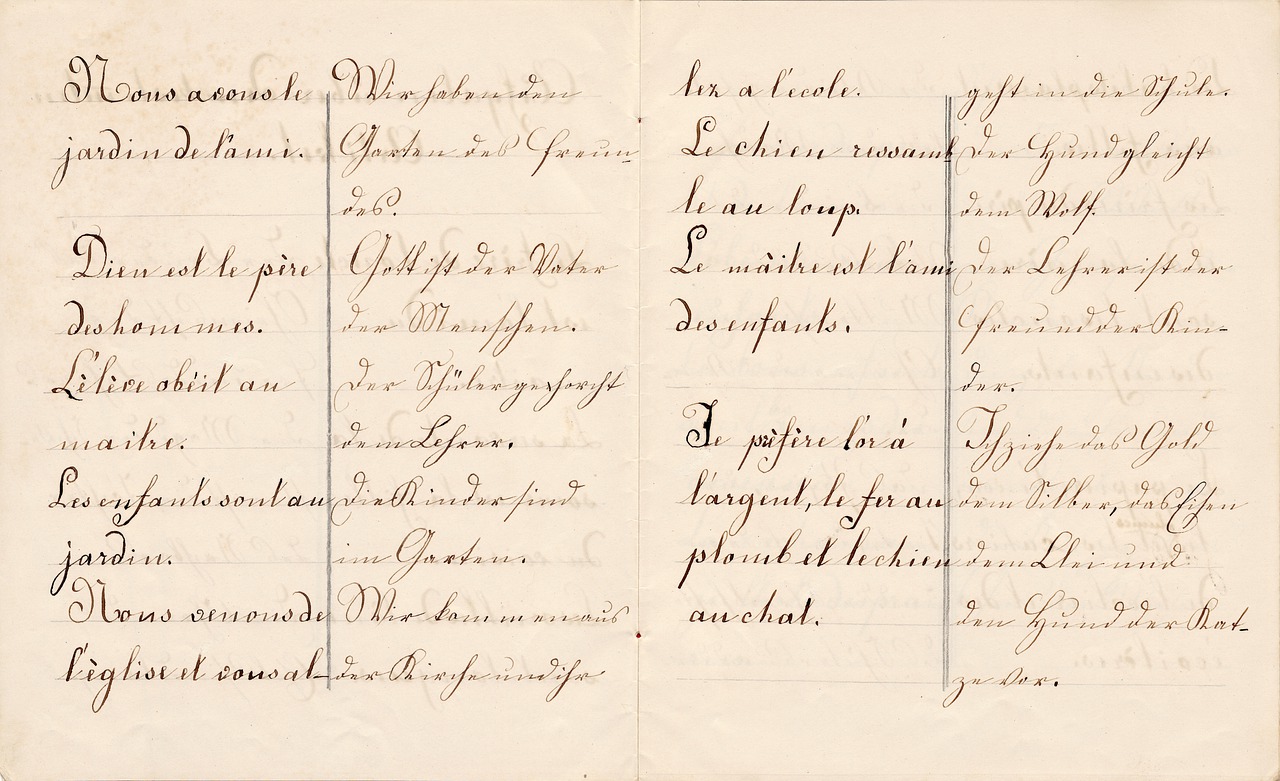
On This Day: September 28
September 28, 1066, was a very important day for English speakers! Do you know why? Childless King Edward had died earlier that year without leaving a clear heir to the throne. While the earl of Wessex was distracted fighting the Viking king in the north, William of Normandy invaded unhindered from the south. Britain’s royal family still traces its legitimacy from William “the Conqueror” today, but his great contribution was actually trying to replace everything English with French language and culture. The parlance changed so dramatically during these years, in fact, that it’s considered a new language. “Middle English” more than doubled in vocabulary, lost its noun cases, simplified its verb tenses, and – sorry – complicated its spelling.

On This Day: September 29
The Civil Rights Movement is most commonly associated with African Americans, but many other minority groups benefited, too. While huge gains were made during the 1950s and ‘60s, however, there was – and still is – a lot of work left to do. Willie Velasquez is one little-known leader who founded the Southwest Voter Registration Education Project in 1972 to fight low voter turnout amongst Hispanics. He died unexpectedly of cancer at forty-four, but was awarded the Presidential Medal of Freedom posthumously on September 29, 1995. Latinos are still less likely to vote than their white counterparts, but these numbers are improving. Don’t give up! Like Velasquez used to say, “Su vota, su voz” – your vote is your voice.

On This Day: September 30
“Little Women,” by Louisa May Alcott, was originally published on September 30, 1868. Like Jo, her main protagonist, Alcott was the second of four sisters, struggling to support her poor family. The book describes the girls’ coming-of-age, but it likely would have been a very different story had they all lived in Wyoming instead of Massachusetts. Women gained the right to vote there in 1869, and on September 30, 1848, a new constitution was passed, ensuring that they kept it when Wyoming became a state – the first to permit female suffrage. Also on this day, in 1918, President Woodrow Wilson personally addressed Congress in support of allowing all women to vote in the United States.